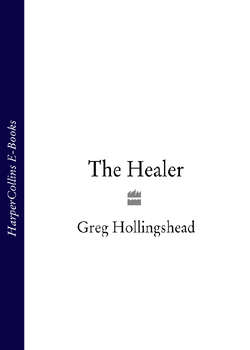Читать книгу The Healer - Greg Hollingshead - Страница 10
ОглавлениеCountry bells jangled over Wakelin’s head. Sunlight widened across linoleum and partway up an oak desk, narrowed and was gone. Commotion in darkness. On the desk an electric fan revolved its swollen cage toward him, a robot head, the rock-weighted papers in its swath agitating so violently that surely they would fly up and blow around at any time. He moved forward, blinded by the sudden diminishment of light: fluorescent tubes flickering from a stipple ceiling, an arborite sheen off walls of nicotine pine, knots like black gouts. At the rear, above the desk, certificates of qualification. Photographs in black frames. Groups of men in shirtsleeves and jackets, shaking each other’s hands. The fan swung away, and multi-coloured plastic streamers across a back doorway took up the dance.
Wakelin moved right, to a cork wall tacked with more Polaroids of cabins among leafless birches in thin sunlight. Small cottages separated by gravel roads from steel-coloured water. Slope-porched red-brick farmhouses, narrow and spruce-darkened. Rural properties. He returned to the desk and smartly, with the flat of his palm, whacked a desk bell.
“Here,” she said.
“Aaah!” Wakelin cried, and as the surprise kept lifting him higher into the air and the embarrassment came flushing up into his face he knew again what a floater he was, and already as he settled back into his shoes he was turning, too fast, and he could feel his whole body clamouring for balance.
That it was Caroline Troyer he knew from a picture in her high school yearbook, reproduced in more than one of the articles. If there was a glow on her I couldn’t see it, and then she smiled. The story was already writing itself in his head, a shameful dodge, the corruption of a good journalist, and it wasn’t even partly true, she was a long way from smiling and yet he could see it right away, a quality of light about her, and if light was too much, then maybe calm focus would do. No one, anyway, who glimpsed this young woman would fail to look a second time. She was sitting on a stool behind a display counter along the street wall, next to the door he had just come through. Her hair was straight and dark, cropped at the livid jaw, and she wore a weed-coloured cardigan unbuttoned over a white T-shirt. Broad shoulders. For the sake of the story he wanted her to be beautiful, but he couldn’t tell at first if she was or wasn’t, and he thought she must be one of those who are either very beautiful or very plain, in some moods and attitudes one and some the other, except that when she is plain you are not sure, and when she is beautiful you have no doubt. A certain rawness or youth in the bones of the face. But not the eyes. No failure of clarity or maturity or definition there. At first he thought they were raging, but moving closer he saw they were simply in a state of full attention. Eyes beholding an accident. No emotion as yet. The accident continuing to unfold.
“I didn’t see you there,” Wakelin said. He was standing across the display case from her. He reached over. “Hi. Tim Wakelin.”
She did not take or, for that matter, look at the hand. He might have been holding out something vile or dangerous he had found lying in the street. He looked down and saw the hand now following through with a feigned casual gesture toward the contents of the case. Well, there was one problem right there.
He pretended to study the contents of the case. An assortment of jewellery and tackle, as the shingle had promised. Many lures and brooches. Many intricately beaded and feathered earrings and dry flies. “Nice work,” he said, knowing nothing about such things. The pieces were certainly beautiful enough. “Yours?”
She shook her head, scarcely. Still watching him.
“But you’re the … daughter?” he said.
“He’s not here.”
Wakelin nodded. A bad question. To his right, her left, a sheet of perforated white pressboard arrayed with rods and other fishing gear. Bolted over a window. He peered down into the case. “Local artist?”
“Bachelor Crooked Hand.”
Again Wakelin nodded. It was possible he had not stopped nodding. “He’s good,” he said. “Mr. Crooked Hand knows his stuff. He is local, then?”
She hooked the hair over her left ear. “Friend of my father’s.” This last word a hard one for her to say apparently. You could hear the wince in it.
“I thought they looked native,” Wakelin said.
She made no reply.
“Listen,” Wakelin said. “I’m looking for a place in the country. Could you—?”
“It’s him does the properties. He’s in in the mornings or I can tell you where he’s at.”
